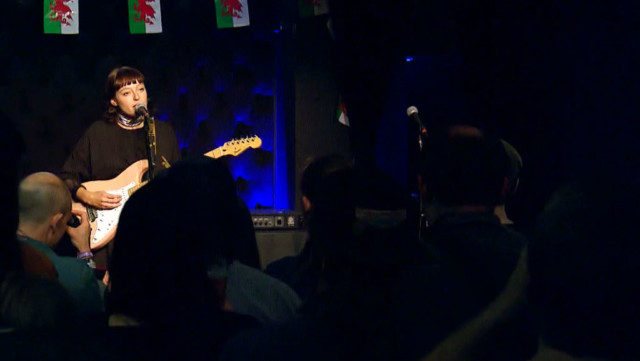#Metoo started a revolution by exposing sexual abuse and harassment in Hollywood. But it’s also given pause for the music industry to ask questions about women artists and broader issues about why they remain underrepresented.
CGTN’s Owen Fairclough reports from the South by Southwest festival in Austin, Texas.
“My friend told me a secret… ” begins Stella Donnelly’s Boys Will Be Boys. It seems a very sugary intro until you suddenly realize it’s about the sexual abuse of someone very close to her.
“Boys Will Be Boys is about the notion of victim blaming and how we often forget about the perpetrators and start questioning the victims,” Donnelly said on a break between shows at her first South By Southwest appearance.
The Australian-Welsh singer has come of age as an artist during #MeToo – the global movement sparked by women lifting the lid on sexual abuse and harassment. “I’ll never forget the response I got from my parents when they first saw me play it in a bar,” she remembers. ”
They said: “ Alright, OK, that was a bit heavy.’ They were both in tears and my dad said: ‘If that song does well, your life will never be the same again.’
Sexual abuse isn’t the only problem in an industry rife with inequality. A new study by researchers at USC Annenberg looked at 600 contemporary songs. It found just 16.8 percent featured women, while female producers represented just 2 percent.
One woman who does produce is Julie Kathryn of I Am Snow Angel.
“One of the reasons I play on my own is that when I had more of a band, I had male musicians with me and oftentimes people, a sound person, might direct their questions to the male who was with me and assume I didn’t play my own music or instruments,” she said.
If the music industry is now having its own reckoning, both these performers sense times are changing.
“I think that Australia often thinks we aren’t part of the problem and a lot of this stuff, we look at Hollywood and go: yeah, that’s Hollywood. I think it’s important to look in your own backyard,” Donnelly said.
“It is about the nature of music and how glorified sex, drugs and drinking and all of that is. But I do think that as time goes on, that generation is moving out and a new generation is moving in. How we treat each other as people is important. People value that,” Kathryn added.
Shared experiences that are driving an overdue global conversation about how women are treated.
Larissa Nalini on gender inequality in the music industry
CGTN’s Owen Fairclough spoke to Brazilian singer and songwriter Larissa Nalini on what it takes to bridge the gender gap in the music and other industries.
 CGTN America
CGTN America

